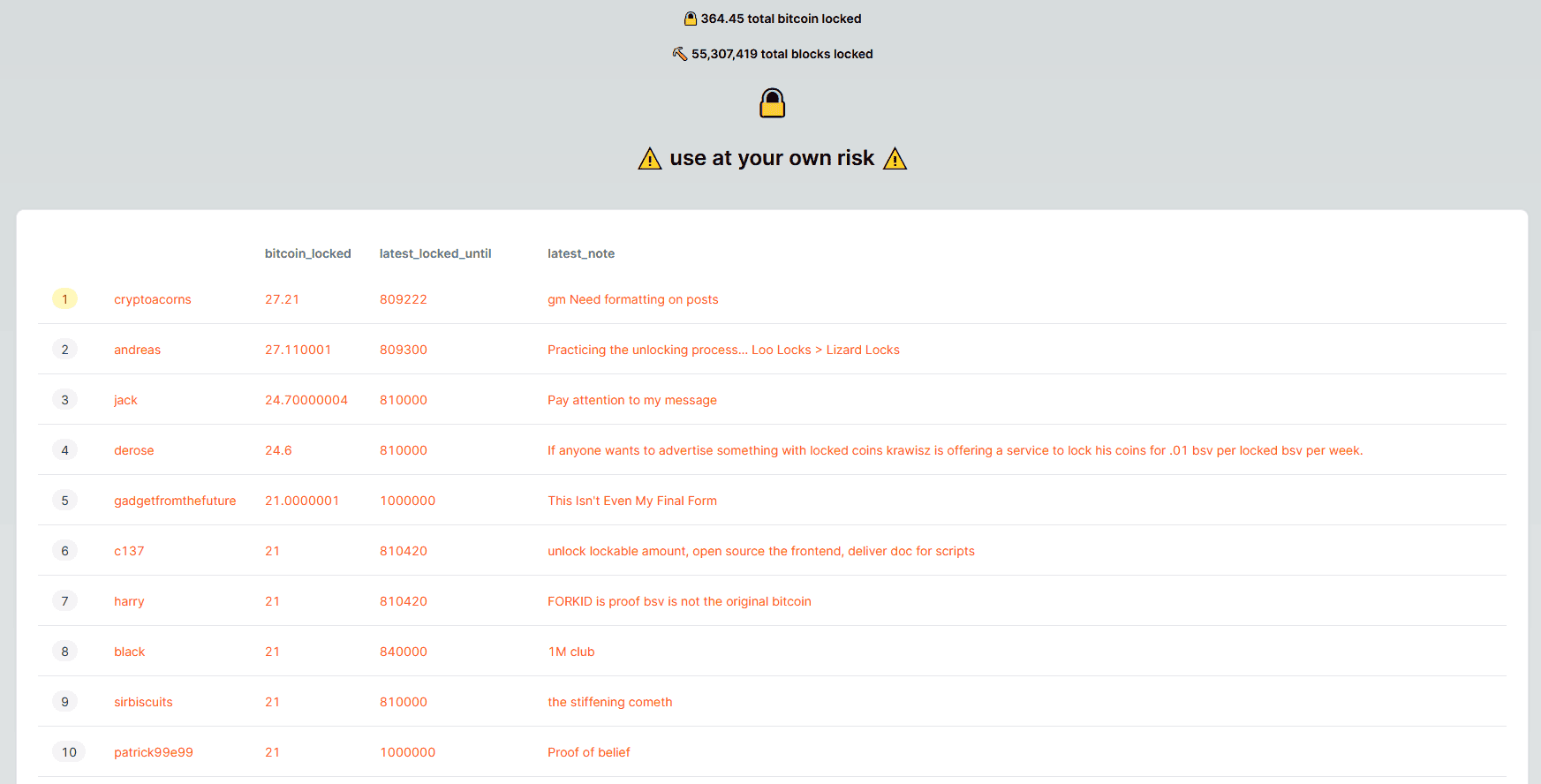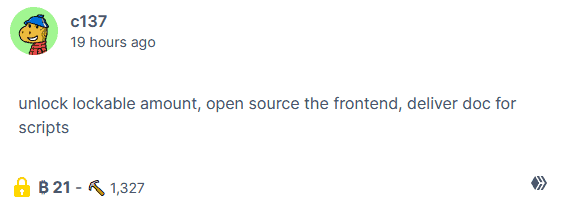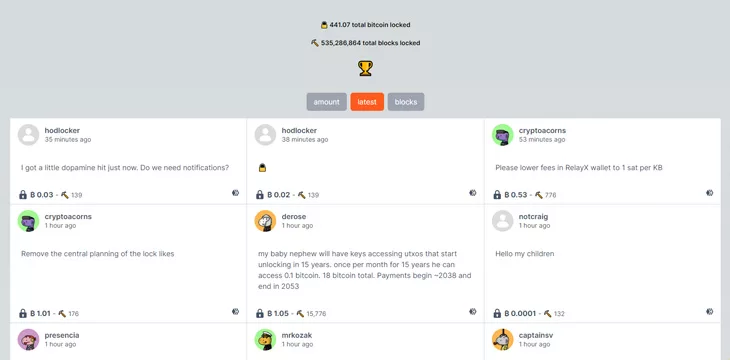|
Getting your Trinity Audio player ready...
|
Hodlocker was launched by pseudonymous developer zero_dt_ as a social media network where users can lock their coins until a specified block height in the future to an Open Social post-on-chain. 360 BSV has been locked since its initial reset despite the clunky user experience and temporary cap of 21 BSV locked per post. The app has rapidly iterated from a simple leaderboard to view which RelayX handles have locked the most coins up:

In the feed, users can sort based on the amount of BSV locked, the latest posts, and posts with the most blocks locked. Ideally, more interesting, relevant filters are added, such as posts with most coins locked in the last 1 or 24 hours, as the current blocks sort could contain posts that lock few satoshis for millions of blocks.
Posts on the feed are Open Social compatible, meaning along with the satoshis and block height being embedded into the on-chain Bitcoin script, this application is fully interoperable from day 1. Anyone can make another “hodlocker” leaderboard social media site and add tokens, airdrops, rewards, and any other features they would like.
The locking script was built by prolific developer David Case (@shruggr) via sCrypt and open-sourced on GitHub so anyone can inspect the code. While Hodlocker only supports RelayX login at the moment, users can unlock the app with their private keys. To demonstrate, I’ve published a gist where users can do just that in case RelayX or Hodlocker go offline. The locking script is set to a public key (in RelayX’s case, a paymail identity key) and a block height in the future. To unlock, the solution to the script is nearly identical to simply sending Bitcoins (P2PKH) with just the signature, public key, and OP_PUSH_TX preimage of the unlocking transaction with nLockTime set to a block height equal to or later than the height of the coins were locked with.
The next feature to be added is the ability for anyone to add locks to other users’ posts via the lock icon at the bottom left:

Instead of a traditional, free, like button that is susceptible to Sybil attacks, users can lock coins to a post to curate instead. Additionally, anyone can post for free without necessarily locking coins up. This idea iterates on the Twetch like that paid $0.05 to the receiver and the BoostPOW protocol by Daniel Krawisz. Of course, users can sort content with the most coins locked up, which would at least be a fascinating twist compared to how social media is consumed today.
Another feature discussed is locking to a user’s profile and ranking those on a leaderboard. This could serve as who are the most influential or relevant users in BSV, which may or may not be useful information but again, is another twist compared to something like shares on friend.tech. The profile lock leaderboard would be fluid, as time locks expire and are recycled, and as information changes.
Overall, this concept has had 360 BSV locked, which may not be much in total fiat value considering a price of $30 per coin. However, one must question when any “crypto” application had that much volume where there was not an opportunity to earn more such as derivatives trading, exchanges, ICOs, NFTs, or gambling. Locking coins, if anything, encourage savings and, dare I say, HODL culture in the community. I look forward to new features added to this new, innovative take on a Bitcoin social network.
Watch: Is Bitcoin as a currency dead? Are CBDCs good for your bags?

 02-21-2026
02-21-2026 




